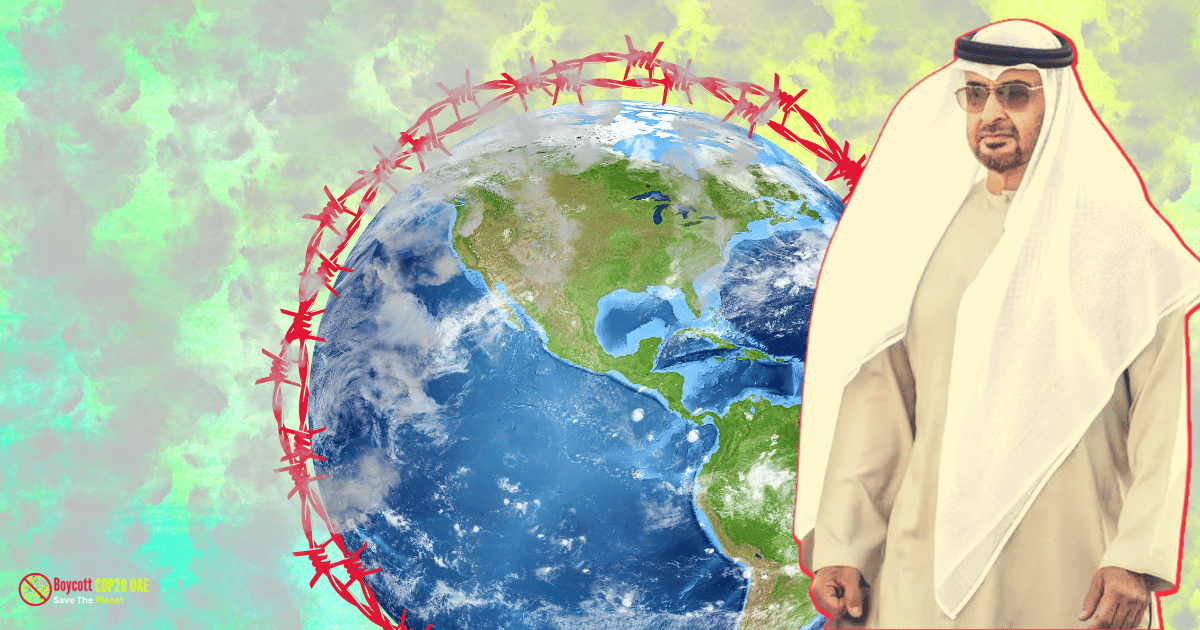The United Arab Emirates (UAE) is a nation that has long been associated with oil and gas production. In recent years, the country has made efforts to emerge as a “soft power” in the world. The small but powerful gulf country is adopting several tactics, including creating the hype that UAE is transitioning towards cleaner energy sources, such as solar and wind power, in order to make impressions of it as the ‘best country’ for environmental sustainability in the world. In this climate advocacy investigative feature article, we will expose how the UAE is exploiting Earth Hour 2023 to create a fake ‘Green Image’ around.
UAE Exploits Earth Hour 2023
UAE leaves no opportunities go away without greenwashing these to portray Itself as the champion of green future. One way in which the UAE has attempted to showcase its commitment to sustainability is through its observance of Earth Hour, an annual event organized by the World Wildlife Fund (WWF) to raise awareness about climate change.
However, while the UAE may tout its Earth Hour observance as evidence of its commitment to sustainability, the reality is that the country’s Petro policies are far from green. In fact, the UAE remains one of the largest producers of oil and gas in the world, and its economy remains heavily dependent on these fossil fuels.
Green Visa, A Gimmick
Despite this, the UAE has made efforts to promote its image as a leader in sustainability. In 2021, the country launched a program called the “Green Visa” which aims to attract foreign investment in renewable energy and other green industries. The UAE has invested in renewable energy projects. But these projects are like a drop in the ocean as compared to investment in its oil & gas sector.
However, these efforts must be viewed in the context of the country’s overall Petro policies. For example, the UAE has continued to invest heavily in its oil and gas sector, with plans to increase production capacity to 5 million barrels per day by 2030. The country is also home to the Abu Dhabi National Oil Company (ADNOC), one of the world’s largest oil and gas companies.
UAE Placing The Most Stress Per Capita on the Planet
Furthermore, the UAE’s commitment to sustainability is often overshadowed by its support for other industries that have a negative impact on the environment. For example, the country is home to a thriving luxury tourism industry, which is heavily dependent on energy-intensive activities such as air travel and large-scale construction projects.
According to WWF/Ecological Footprint report Our Living Planet Report, the UAE are placing the most stress per capita on the planet. Compared to the world average Total Ecological Footprint (TEF) of 1.8 global ha/person, the TEF for the UAE was 11.9 global ha/person (hectares/person).
Environmental Unsustainable Artificially Created Attractions
Nevertheless, the environmentalists blame large scale developments such as artificial islands, skyscrapers, shopping malls, artificial ski resorts and others the cause of present status. According to them tourism based on such artificially created and maintained attractions is not sustainable as it consumes exponentially high energy for its functionality.
In this context, the UAE’s celebration of Earth Hour can be seen as a form of greenwashing – a way for the country to promote its image as a leader in sustainability while continuing to pursue policies that are harmful to the environment. While it is certainly commendable that the UAE has made efforts to transition towards cleaner energy sources, these efforts must be viewed in the broader context of the country’s overall petro policies and its support for other industries that have a negative impact on the environment.






